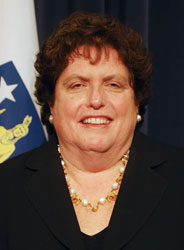US Department of Labor Provides Funding To Assist Workers in Devens and Ayer, Massachusetts
DOL Secretary Solis Comments on Grant
“Many of these workers — who have lost jobs through no fault of their own — face significant language and education barriers to new employment,” said Secretary of Labor Hilda L. Solis. “This grant will make available the services they need to re-enter the workforce.”
Merrimack Valley Workforce Investment Board Will Operate Grant
Awarded to the Massachusetts Department of Workforce Development, this grant will be operated by the Merrimack Valley Workforce Investment Board. It will provide these dislocated workers, many of whom are also certified as eligible for Trade Adjustment Assistance (TAA), with access to “wrap-around” and supportive services that are not available through the TAA program. The workers that are not TAA-eligible will have access to the full array of training and employment-related services under this grant, including English for speakers of other languages classes and assistance to prepare for the General Educational Development tests.
Additional Funding Will Be Released as Needed
Of the $1,570,907 announced today, $701,933 will be released initially. Additional funding up to the amount approved will be made available as the commonwealth demonstrates a continued need for funding.
National Emergency Grants Are Part of Discretionary Fund
National Emergency Grants are part of the secretary of labor’s discretionary fund and are awarded based on a state or commonwealth’s ability to meet specific guidelines.








Vision Payroll